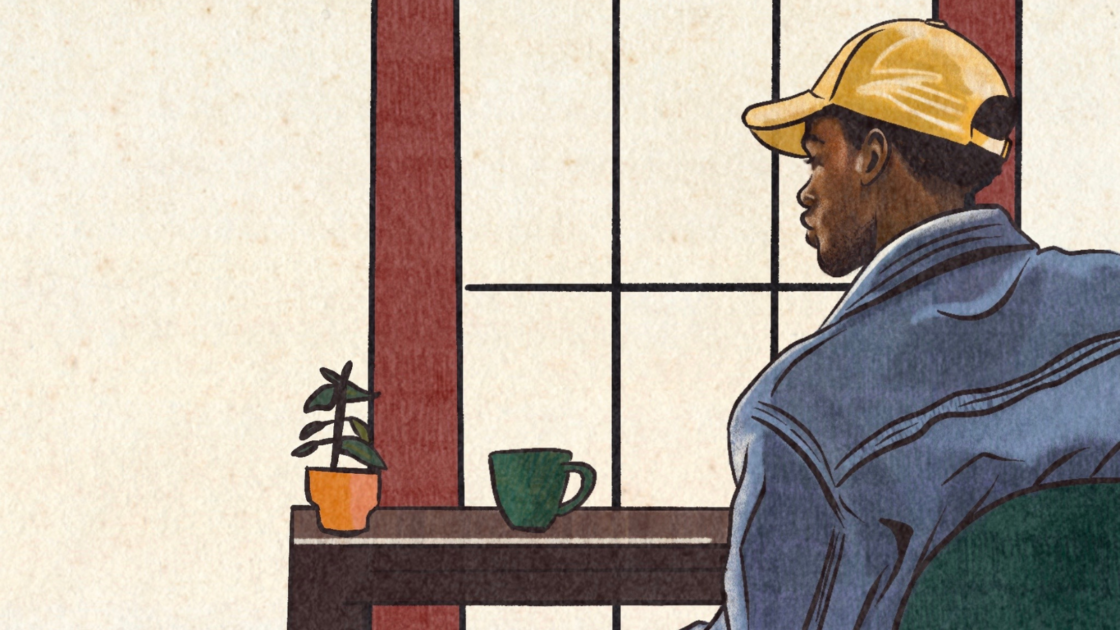My experiences as an immigrant in Ireland
Presly discusses how he navigates the ins and outs of being an immigrant in Ireland while experiencing racial anxiety, structural discrimination, and culture shock.

Moving schools is nerve-wracking enough as it is, but moving continents is a whole different ball game. Migrating to Ireland in 2019 as a fourteen-year-old came with anxieties, joys, lessons and struggles.
Culture shock and initial challenges
Culture shock is defined as a feeling of disorientation experienced by someone when they are suddenly subjected to an unfamiliar culture, way of life, or set of attitudes. This definition speaks to my experience when I first moved to Ireland as it was the first time I was introduced to Irish culture. Along with this disorientation came an overwhelming apprehension of racism and discrimination. I was in a vulnerable state, constantly wondering what other young people would think about me. Questions ran through my head like: Is my accent good enough? Do I dress funny? Is my English acceptable? Will I ever fit in?
I had a strong desire to quickly become like the rest of my peers but it didn’t pan out that way. The pandemic started just months after I arrived and we had to go into lockdown. With it came one of the lowest points in my life. I struggled to adapt, ignoring my mental health as I spiralled into the depths of depression while my racial anxiety only got worse. Racial anxiety occurs when someone interacts with people of other ethnicities and experiences heightened levels of stress and emotion. I found myself stuck in the mindset of us vs them; focusing not on the similarities between me and my peers but rather on the differences.
How I integrate into Irish society
Once I started looking at what I had in common with everyone else, my confidence rose and I started to feel like I belonged. I also had a better understanding of what my identity was. I learnt not to be ashamed or secretive about my heritage and where I’m from but also not to fear taking that step into an unknown culture.
The bridge I found between the two was to seek the similarities between the cultures. We all want the best for our families, we all like rallying up to support our local sports team, and we all love laughing with our friends from time to time. Such simple shared experiences were the gateway to me shaping my own identity in Ireland.
Schools also play a crucial role in the integration of immigrant students into Ireland. With an increasingly diverse student population, the education system needs to be more accommodating to its students. The strict school rules limit students’ ability to express themselves, which may lead to their culture being unappreciated or inaccessible. For example, strict rules regarding head coverings do not allow the wearing of the hijab or any other clothing or symbol required by a pupil’s faith. We can’t expect schools to know every norm and value that a student holds but there must be a willingness to listen to and amplify the marginalised voices of minorities.
Racism does exist in Ireland; it’s a global problem and there are countless stories of people who have been subjected to discriminatory behaviour in their communities. However, I am very fortunate and grateful to have encountered largely welcoming, inclusive and loving schools and local communities. This helped calm my racial anxiety and challenged my preconceptions about what life as a young black immigrant could be.
I remember the first time I felt at ease about my immigrant status; it was on my very first day in the country, on the bus from Dublin Airport to Cork. I was sitting next to an older lady. I kept to myself, facing away from her to avoid any social interaction and fell asleep. When I woke up, my head was leaning on her shoulder. I was very embarrassed and could not stop apologising. With a gentle voice and a smile on her face, she reassured me that “it’s okay” and offered me one of her Ferrero Rochers.
This is a showcase of the kindness and compassion I have found in Irish society. I think it’s important to highlight the positive experiences to show that equality isn’t some mythical ideology that we can never achieve, but a possibility for us all. Equality is something that must be worked towards every day. It is a continuous effort to achieve an equitable world.
Structural discrimination
From a legal perspective, the discrepancies between me and my peers have been more pronounced. As an immigrant, you can get pulled into a false sense of security because of environments such as school that make you feel like you have the same rights as everyone else when in reality you do not.
There has been a stark contrast between the compassionate nature of the general public and the harsh realities of Irish Immigration law. Quintessential experiences for a young person such as getting a job, going on trips abroad with your friends or study trips are simply not easy or sometimes legal for someone like me. These things require an excessive amount of paperwork, waiting and even begging.
One of the most dreadful places for me is the Immigration office, which I must attend once every year to remain in the state. Every time I go there, there is the worry that somehow I violated the conditions of my stay and they might tell me to leave the country. I have to pay 300 euros each time I go there for an IRP (Irish Residence Permit) card just so I can remain in the country. Since I can’t work or financially support myself, the financial burden falls on my parents. If you think about it, immigrant families are potentially spending thousands for a plastic card each year with their name and picture, because this is the law.
After my Leaving certificate exams, I decided to enrol in a PLC (Post Leaving Certificate) course for a year. I went through the application and interview process like any other person but my application was promptly halted. This was because of the stamp on my 300 euro IRP card. I ran to the immigration office seeking an explanation but they said it was “out of their hands” and that it’s “just the law.”
Regardless of my parents being legal tax-paying residents, I can’t avail of certain forms of education nor can I even save up money for it. I have to be more vigilant and attentive than the average young person so that I can be allowed to stay. At times it feels like that’s the only right I have: staying.
There is no information or adequate assistance for people in my position. It’s just a rigid system of rules that mount barriers between me and the standard of living enjoyed by my peers.
I love how diverse and inclusive the Irish population is steadily becoming but in the background, there is structural discrimination in the system that is veiled by the kind smiles of the people around you.
Feeling overwhelmed and want to talk to someone?
- Get anonymous support 24/7 with our text message support service
- Connect with a trained volunteer who will listen to you, and help you to move forward feeling better
- Whatsapp us now or free-text SPUNOUT to 50808 to begin.
- Find out more about our text message support service
If you are a customer of the 48 or An Post network or cannot get through using the ‘50808’ short code please text HELLO to 086 1800 280 (standard message rates may apply). Some smaller networks do not support short codes like ‘50808’.






